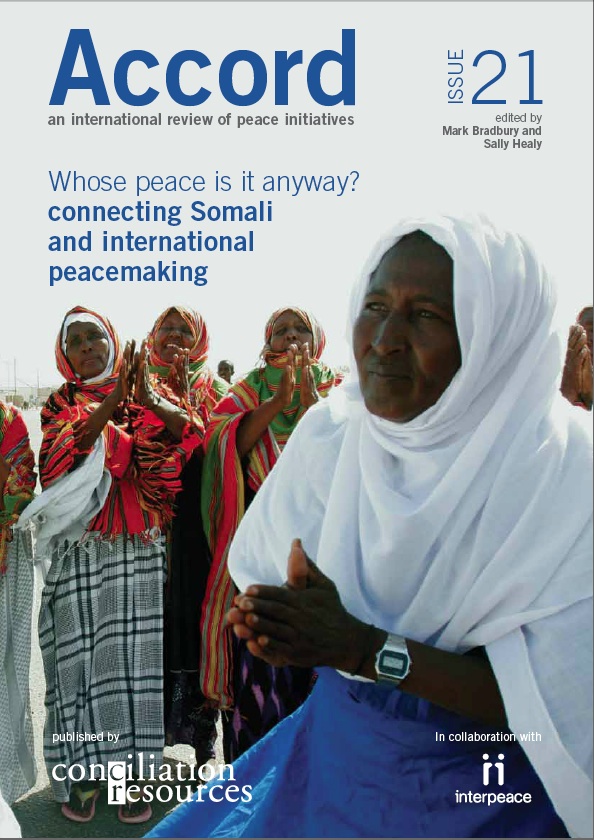A critical element in Djibouti was the need to maintain the pace and momentum of the talks. It was necessary to demonstrate regular progress in order to convince detractors of the process of the benefits of ‘coming on board’. This required both successes in the monthly rounds of talks as well as sustained external pressure to highlight the negative consequences of hindering them.
In practice, this meant carefully managing the statements and communiqués that resulted from each round of talks so that they would demonstrate success, but not giving too much out publicly before the parties had consolidated their own constituencies’ support behind agreements.
For example, following agreement in principle in November 2008 to political cooperation, the delegations of the two parties needed to return to their constituencies and talk through what this would mean and to get their support for the details that would then be agreed in the next round of discussions.
However the ability of the mediator to control the pace of the talks changed with the political developments at the end of 2008, and especially the unexpected resignation of President Abdullahi Yusuf on 29 December. This set in motion a new set of deadlines under the Transitional Federal Charter whereby a new President needed to be elected within 30 days.
Rather than managing and controlling the deadlines, therefore, the mediation now had to compress the political cooperation dialogue into this revised and curtailed timeframe, and to contend with the other new political realities that the President’s resignation brought with it.
Although this was a difficult shift for the mediation, the momentum it produced – for both the parties and the regional and international players – made it possible to push this aspect of the talks to a rapid conclusion. This was by no means uncontroversial, with considerable debate among external and Somali actors around the broader impact of speeding up the process.
Bringing the existing TFG MPs and the prospective ARS MPs to Djibouti was an example of the importance of momentum in peace talks. Convincing MPs to come to Djibouti indicated that the balance of support among Somalis was shifting towards the Djibouti process. Equally importantly, momentum was generated by pressure from Somali actors in Djibouti, as well as through pressure from regional and international actors.
It is important to note, however, that there were political interests at play. It was these rather than a pure commitment to reconciliation, or the need for further dialogue, which helped make progress. The shift can be interpreted as a recognition that the political balance had changed, and different actors calculated that their political interests lay in being part of the process rather than remaining outside it.

